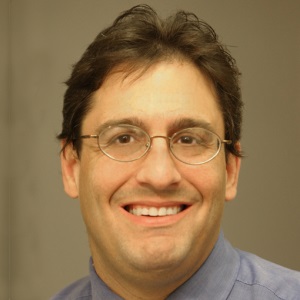Becoming competitive for a teaching (and research) position: part 3
After the marathon of creating interesting research and teaching statements, chasing down letters of recommendation, and filling out piles of forms comes the painfully long wait to hear back from prospective employers. However, if you get that call or email to arrange an interview, it is time for a celebration — and preparation!
Phone interview
Most primarily undergraduate institutions and community colleges conduct phone interviews before deciding whom to bring to an on-campus interview. This allows the school to screen a deeper pool of applicants and narrow the field.
A phone interview will last from 20 minutes to an hour and is a challenge for the interviewee. Prepare for your interview by reviewing the application and highlight each component of the advertisement. Ensure you can address each point of the position description.
Most interviews will ask some common questions:
-
What is your teaching history? Discuss how you would teach a course for first-year or senior classes.
-
What classes are you comfortable teaching?
-
Have you used different teaching techniques/pedagogical approaches?
-
Describe your history or how you would manage a classroom or mentor students.
-
Talk about your teaching philosophy, how you approach teaching science courses for majors or nonmajors (in the classroom or teaching laboratories).
-
Have you done outreach or service learning?
-
If the institution is a liberal arts college or university or if a component of the job involves nonmajors, be ready to discuss the importance of liberal studies for student learning and your potential role.
-
Describe your research and how you would involve students.
-
Explain your short- and long-term research goals.
-
Be prepared to address specific instrument needs. If you have to have high-powered equipment or access to an animal room for your research, consider how much this will cost and alternatives that will allow you to continue your work if the university can’t accommodate those needs. Partnering with another institution is not an unreasonable way to approach this. Having some sort of agreement in place is a bonus.
Just like with preparing for a scientific presentation, practice is key. Practice giving the answers out loud and in front of a friendly audience.
The phone interview is difficult. There is little feedback and interpreting subtle cues is a futile exercise and can be discomforting.
While it seems an obvious point, find a quiet place and, if possible, use a landline instead of a cell phone. Dropping a phone call during an interview is unnerving. I have been in several interviews where the call was in a busy lab with all of the usual disconcerting background noise. Another interviewee conducted the interview outside where traffic and a siren disrupted the dialogue.
Speak slowly and deliberately and smile. Enthusiasm, interest in the position, and animation will come through your voice when you are practiced and in a positive mood.
Remember to review current teaching approaches, assessment techniques and student outcomes.
Reference the ASBMB and other resources to talk about how you would use such resources to develop your teaching and re-read how to prepare your teaching statement for hints.
Remember that the search committee is looking to find someone what can contribute to the mission of the department and who can teach more than an upper-level specialized class. Read the background of the department members and information on existing courses and programs.
Make sure you have a question or two prepared for the inevitable question: “Do you have any questions?”
On-campus interview
This is what you can expect of a typical two-day, in-person interview:
-
Meet with faculty, students, staff and administrators;
-
give a research talk, possibly a teaching talk or lecture; and
-
have a dinner or two with groups of faculty.
The process is a marathon and can be exciting. I have done this a few times, and I can tell you that preparation helps you to be relaxed and yourself.
My first offer came from the last interview for four positions. I was tired from the travel and the emotional stress of four sets of closely scheduled interviews. I was absolutely interested in the job but was sick with a flu and mild fever. I was feeling very ill and had taken something during the flight to help with the fever. I did not expect to be picked up at the airport by a senior faculty member who wanted to stop for chili and a beer to visit. I wasn’t prepared to decline the invitation, as he wasn’t able to be at my interview the next two days. Somehow I was able to convince them I was peppy and able to work well with the students. I don’t encourage cold medicine to help your interview!
In addition, having been on the other side of the interview many times at several institutions, I can tell you the passion and interest of a candidate is one of the first things I notice. Are they genuinely interested in the position? How do they relate to the students? Can they motivate and inspire students in the classroom, teaching laboratory, during advising and in the research lab? Will they be a good colleague and compliment the work of the department and university?
Research talk
Your research talk is not meant to impress experts in your field that you can do the most cutting-edge work. It is meant just as much to showcase your research as it is to demonstrate your abilities to teach a complicated and likely unknown topic to faculty and students.
Your audience will be organic and analytical chemists, wildlife behavior biologists, and perhaps a physicist or two. There may only be one or two biochemists or molecular biologists at the university and, even then, they may not be very familiar with your specific research problem.
A few tips for your research talk:
-
Find a balance between teaching about your research project, selling it as an exciting fundable project, and one that has long-term promise
-
Spend time talking about your future research plans. If the bulk of your proposed project is different from the research talk, find a connection and transition into the future work in the final portion of the talk.
-
Explain how you will integrate students into the project. If undergrads helped with your work along the way, highlight them during the talk, not just at the end in an acknowledgment slide.
-
Keep the slides from looking like your dissertation defense or overcrowded.
-
Maintain the principles of any good talk: take breaks, refresh the audience with the goal, present the project in bite-size chunks with “why do I care?” moments.
Teaching talk
You might be asked to give a lecture or teach a topic in your main discipline. In some cases, you might serve as a guest lecturer for a day. The host will coordinate and even give some options of the material to cover.
Others might ask for a separate short teaching example. If asked to give such a talk, make sure you stick to the topic. Ask the current instructor for learning objectives or an outline of expectations for the lecture.
Consider what approach you will want to take when teaching the course if you are hired and, at the same time, ask the host how the course has traditionally been taught in terms of depth, chemical approach, and breadth.
If possible, ask what book the course uses and ask for figures if you plan to use PowerPoint. Find out who is teaching the same course at your current institution and ask for a little guidance.

Engaging the students during your talk
This is both important and terribly dangerous. Asking questions of a group of students has led to many a blank stare from the students, adrenal secretion from the interviewee, and a panic to get out of the dead spot.
It takes practice and experience with students to learn how to engage them in a dialogue in front of their peers and professors. Students will genuinely want to participate but may feel a little nervous to say the wrong thing. It also takes time to earn the trust of students.
Asking direct questions is in the danger zone. Instead, start with opinion questions or simple questions to get them engaged. For more critical concepts, ask for a show of hands for two options (well-defined ahead of time) and then ask why someone voted one way, or use the majority to drive the presentation.
Involve the students, but do so in a controlled, practiced way so you aren’t left in a difficult situation.
Negotiating the offer
When the offer comes, you have several issues to consider.
Salary and startup are two obvious questions. Some public universities have very limited guidelines on salary. If the campus is unionized, there may be additional considerations and limitations. Private PUIs may have more room for negotiation.
At this time, the institution is ready to invest in your future. This is one of the few times you can set your salary.
During your visit, ask department members or the chair how salary negotiations proceed at the institution, and how much flexibility there is in the negotiation process. For some schools, there is no room. The offer is final and pushing too hard can result in a withdrawn offer. I have seen this with one young promising scientist who was clearly getting bad advice. At the same time, you need to ask for what you are worth.
The startup package is another tricky issue. They range wildly from nothing to $150,000. Many are only a few thousand, but a good PUI startup package will be anywhere between $20,000 and $100,000. Again, ask what a typical startup has been for the past few similar hires.
The concept is to provide enough funds to help the new faculty member be successful in their research. If you are looking at an institution with little to no research expectation, then the startup package will likely reflect this. Space and remodeling are another part of the initial offer. Will you need a new hood or access to a space? Ask for this in your contract while negotiating.
There are several other issues to consider: reduced teaching load for the first year, student support for your first summer, and perhaps a summer stipend to come early and start a few months before the academic year begins.
If you have experience, this is the time to include the tenure timeline.
The initial search for a position to the signing of a contract is likely to be a nine-month adventure. From start to finish, the more you prepare at each step of the way, the better your chances are to reach the finish line with an office, laboratory and a teaching schedule.
Being a teaching and research faculty member is rewarding and different than other potential Ph.D. career paths. Now, go teach and mentor students. Good hunting and good luck.
This article originally appeared on The Substrate Blog, published by the American Society for Biochemistry and Molecular Biology. It has since been edited for ASBMB Today. Read part 1 and part 2.
Enjoy reading ASBMB Today?
Become a member to receive the print edition four times a year and the digital edition monthly.
Learn moreFeatured jobs
from the ASBMB career center
Get the latest from ASBMB Today
Enter your email address, and we’ll send you a weekly email with recent articles, interviews and more.
Latest in Careers
Careers highlights or most popular articles
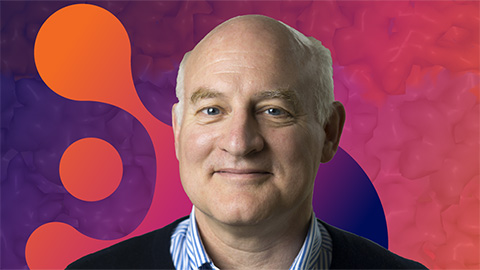
Building the blueprint to block HIV
Wesley Sundquist will present his work on the HIV capsid and revolutionary drug, Lenacapavir, at the ASBMB Annual Meeting, March 7–10, in Maryland.
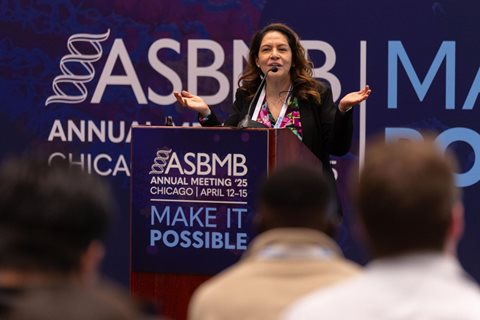
Upcoming opportunities
Present your research alongside other outstanding scientists. The #ASBMB26 late-breaking abstract deadline is Jan. 15.
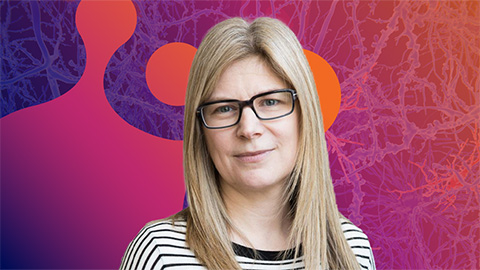
Designing life’s building blocks with AI
Tanja Kortemme, a professor at the University of California, San Francisco, will discuss her research using computational biology to engineer proteins at the 2026 ASBMB Annual Meeting.

Upcoming opportunities
#ASBMB26 late-breaking abstract submission opens on December 8. Register by Jan. 15 to get the early rate on our Annual Meeting.

Make your abstract stand out
Ensure your research is impossible to overlook. Get quick, practical reminders for crafting an abstract that attracts readers and helps you build connections at the conference.
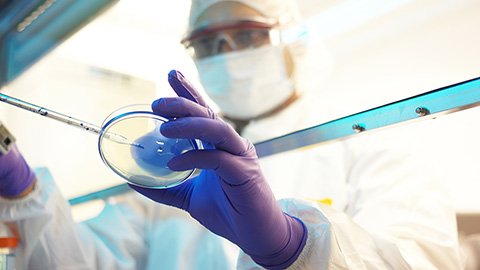
Inside industry postdocs
As more Ph.D. scientists look beyond academia, industry postdocs offer a new kind of training, where mentorship meets mission-driven research. Fellows at Pfizer and Genentech share how these programs prepare them to translate discovery into impact.

